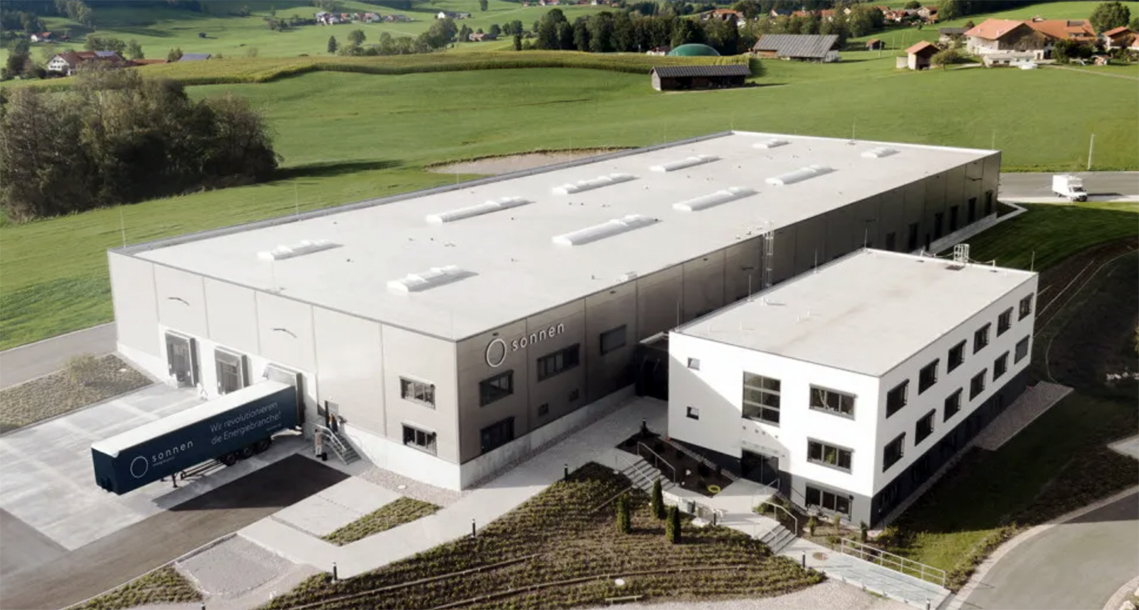Virtual power plant links 25,000 batteries in Germany
- August 22, 2023
- Steve Rogerson

Shell subsidiary Sonnen is building Europe’s largest virtual home battery storage linking tens of thousands of batteries throughout Germany.
The batteries can be intelligently controlled and used like a large-scale storage facility. The total capacity of this virtual power plant, currently 250MWh, is growing continuously and is expected to reach 1GWh in the next few years. This will provide the power grid with a digital and decentralised buffer storage that can balance the supply and demand of renewable energies.
The 25,000 batteries across Germany are already up and running, which corresponds to a capacity of 250MWh. The goal is to increase this capacity to 1GWh in the next few years.
The virtual power plant provides capacity for the German transmission grid to compensate for frequency fluctuations in the power grid (frequency containment reserve) or to participate in electricity trading on the stock exchange. In addition, the storage fleet can shift the feed-in time of solar power to a more convenient time for the grid; for example, by ensuring the midday peak of solar power (PV) is stored instead of burdening the power grid.
Beside the self-consumption of solar energy, customers benefit from such services via the energy contract and receive a share of the profits from the virtual power plant.
“Almost any country that switches to clean energy will, sooner or later, reach the limits of its power grids by merely adding capacity,” said Oliver Koch, CEO of Sonnen. “That’s why storage and digitalisation are key technologies, and that’s why we’re expanding our technology to more and more European markets, the USA and Australia. With our virtual power plant, we have an existing tool to integrate PV systems, electric vehicles or heat pumps into our grids. Our power plant is already in people’s homes and does not require any additional space.”
The advantage of a decentralised storage system is it can be activated at virtually any location where there is a bottleneck in the power grid and is therefore not tied to a specific location. By participating in the energy markets, households also gain access to a market that was previously reserved for industrial suppliers. Revenue in the energy system is thus distributed more widely.
In addition to Germany, Sonnen (sonnengroup.com) also operates virtual power plants in the USA, Australia and Italy. This means that the Allgäu-based company exports a key technology for the energy transition worldwide.





